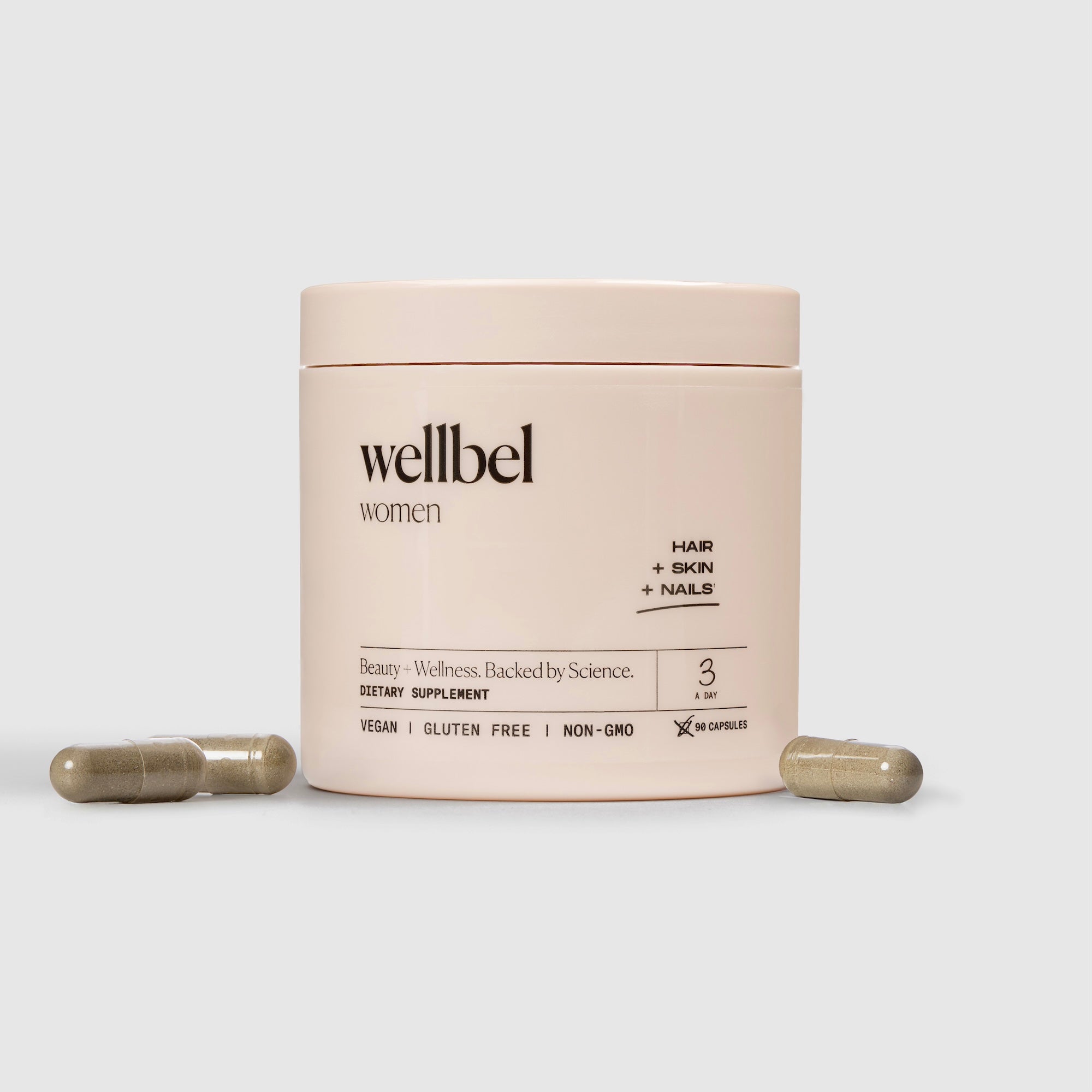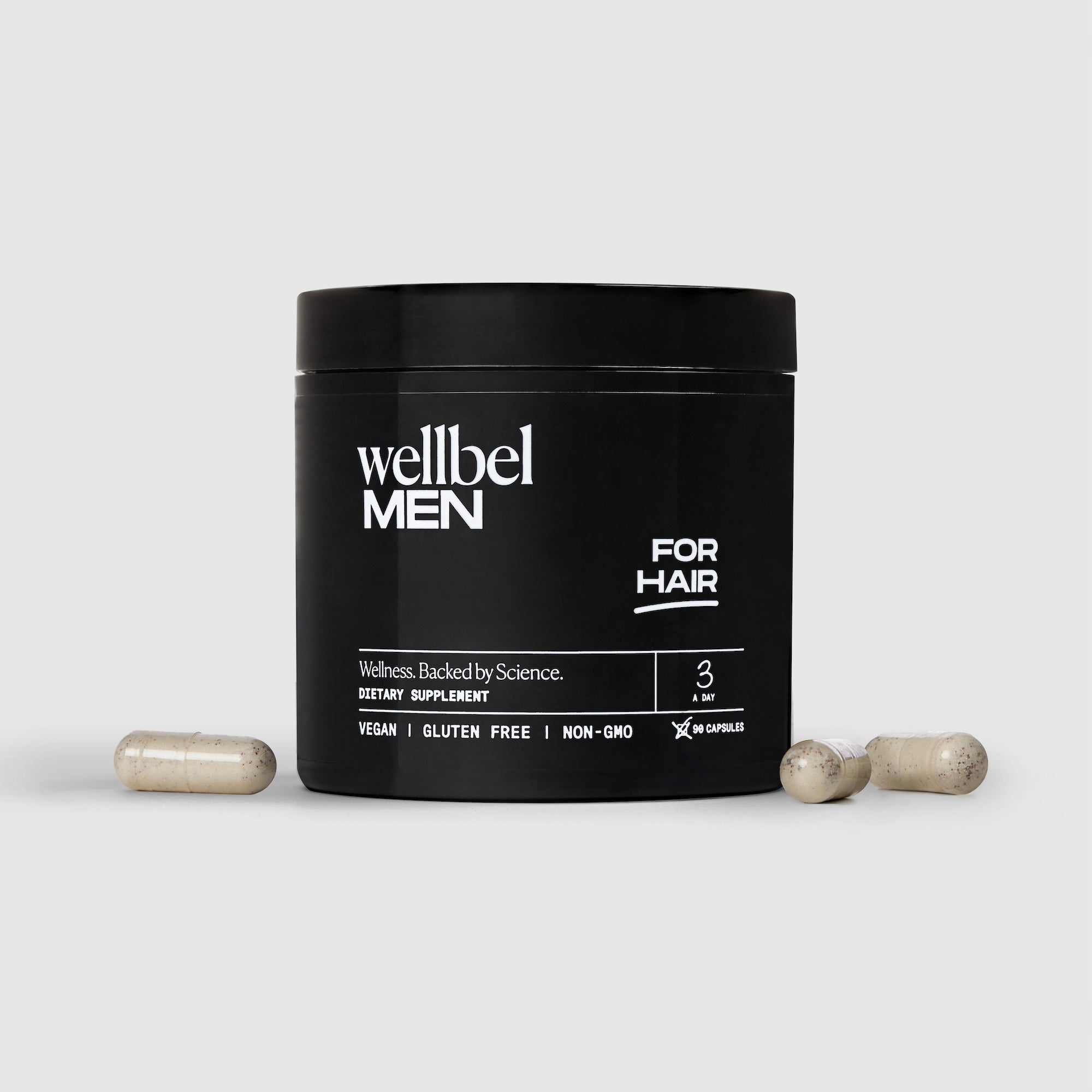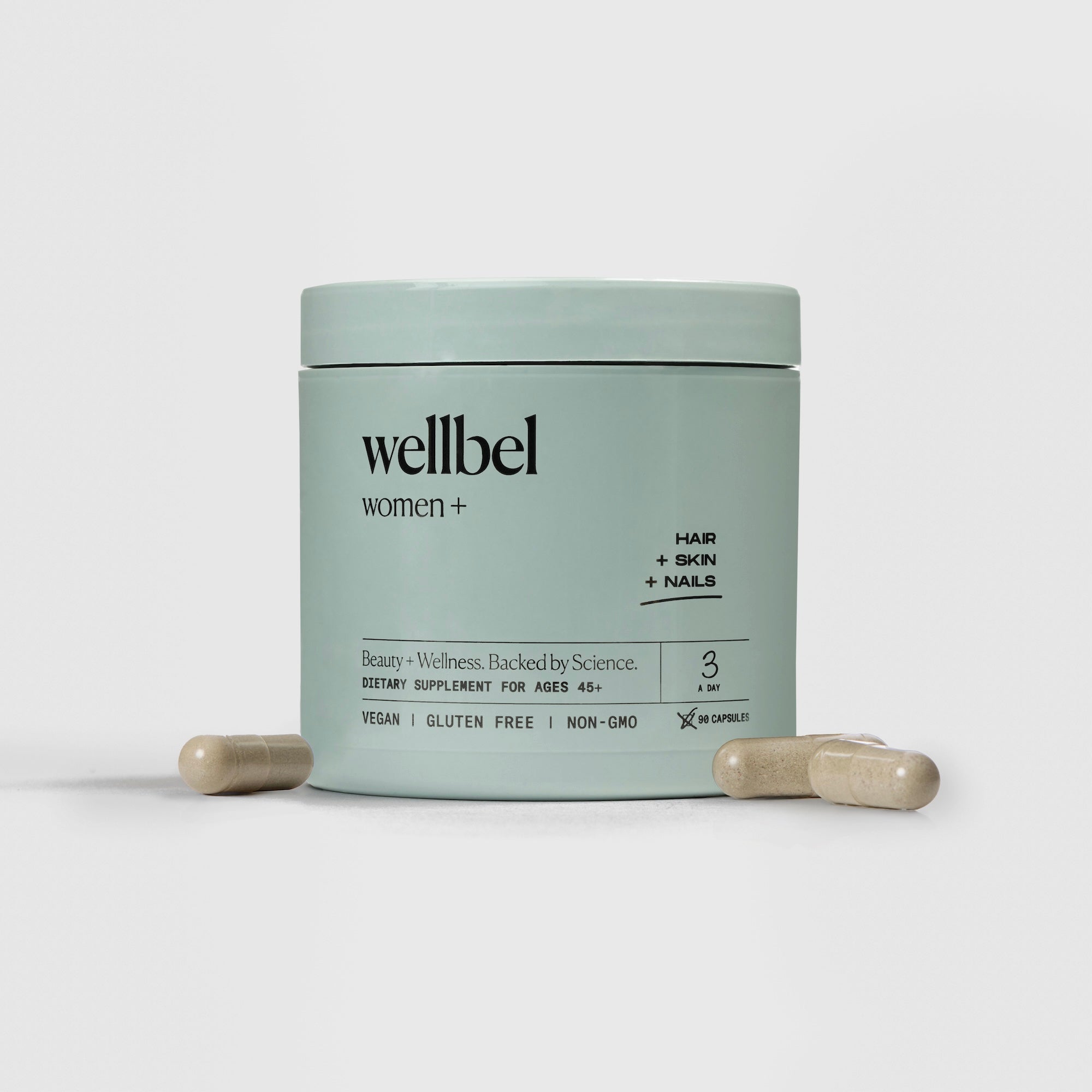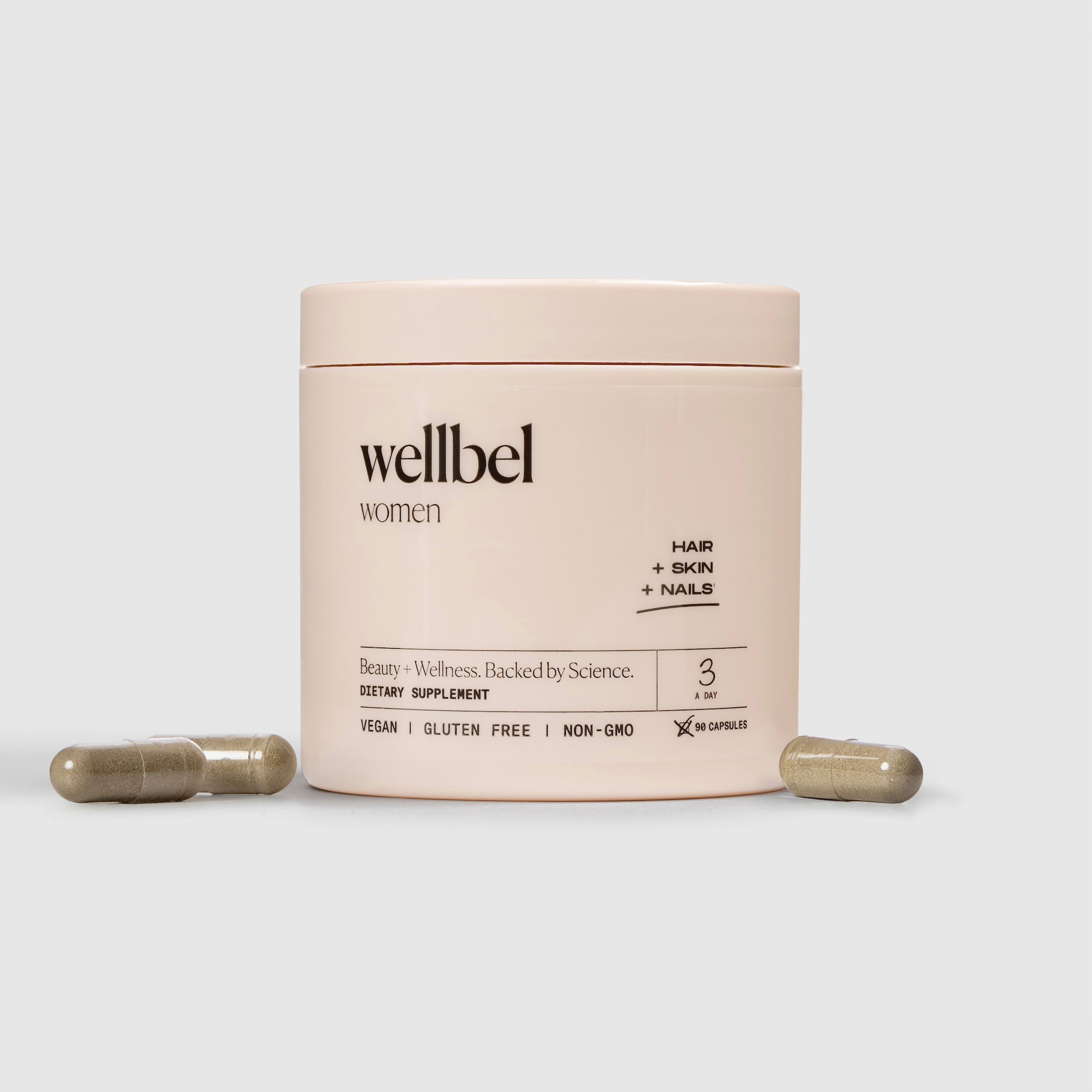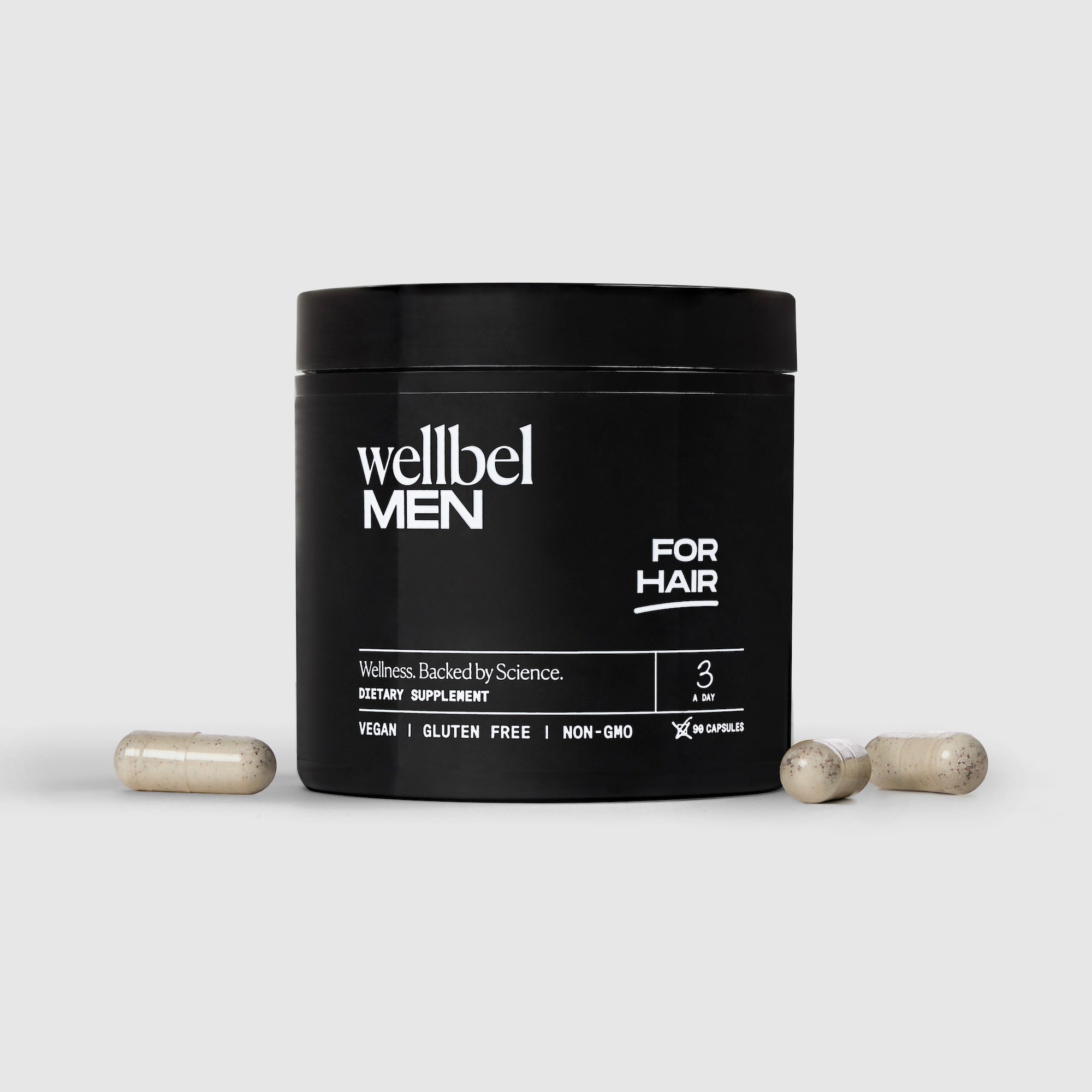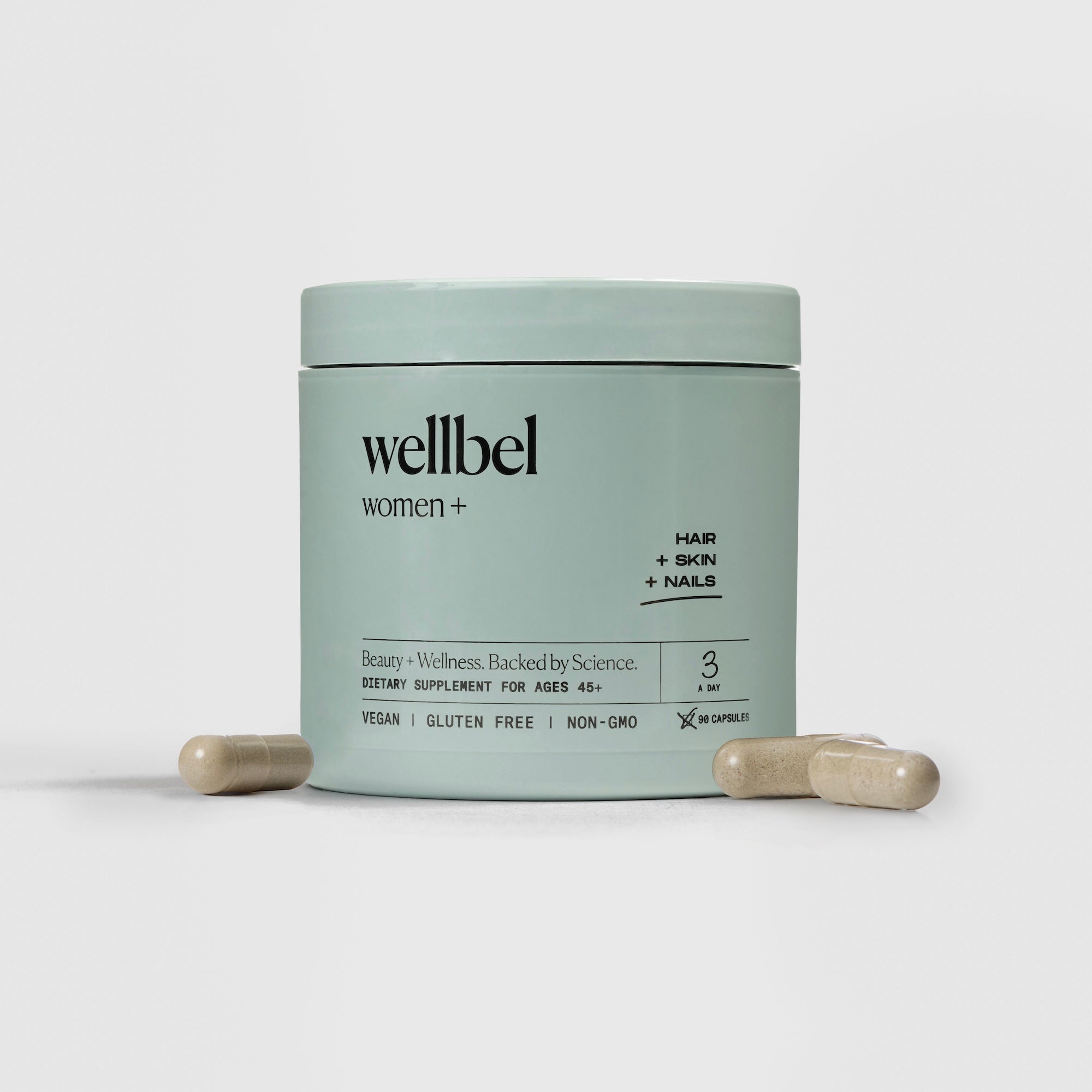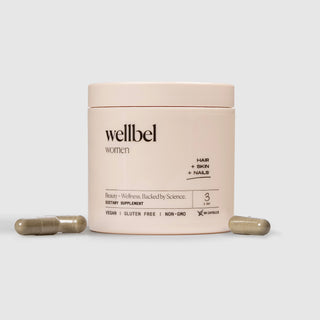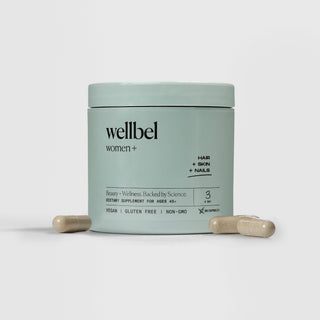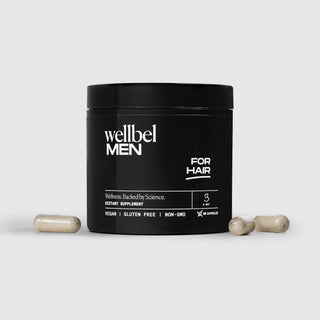Would it surprise you to know that hair loss is as common for women as it is for men? It’s true. Women experience pattern baldness and hair thinning as much as men, but for many women that experience can be a distressing one.
We don’t have many examples of women in the public eye who are dealing with hair loss or have opted to go bald. That’s one contributing factor to what we see as a stigma against hair loss for women. Our culture can be superficial, and in a world where youthfulness and beauty are ranked highly, hair loss can make us feel like we don’t belong.
Here at Wellbel, we have a different point of view. Hair loss is normal and common and nothing to be ashamed of. It can happen for a variety of reasons, which we’ll go over below, but know if you are seeing a lot of hair in your shower drain or on your hair brush that you are not alone.
It’s our mission to empower women with the facts (and the nutrition) to help them take on hair loss, however it looks for them. So keep reading for a comprehensive guide to hair loss in women and what you can do to address it.
Why Do Women Experience Hair Loss?
Let’s start with the why. Why do women lose hair? Short answer: it depends. Everyone’s bodies and circumstances are different, but below are some of the four most common causes of women’s hair loss.
Aging
Like men, many women experience female pattern hair loss as they age. This is known as androgenetic alopecia or androgenic alopecia, meaning your genetics certainly play a role. When it comes to hereditary hair loss, women tend to see thinning and bald patches around the crown of their head, rather than a receding hairline. Most of the time, androgenetic alopecia never progresses to complete baldness for women.
So what happens to the missing hair? Think about it like this.
Every hair strand on your scalp begins in a hair follicle. As we age, hair follicles shrink. At the same time, our bodies are producing less collagen naturally, which protects both our scalp skin and our hair follicles, as well as providing key amino acids which make up the protein of hair strands. The result? Finer, shorter hair which tends toward dry and brittle.
Stress
If you saw the word ‘genetics’ in the previous paragraph and felt it didn’t apply to you based on your family history of hair density, it’s possible that you’re dealing with a different cause of hair loss.
Another common cause is stress. When we experience a particularly stressful event, like illness, injury, or trauma, our bodies certainly keep the score, and that includes our hair follicles.
Sudden stress totally disrupts the natural hair growth cycle. At any given time, about eighty to ninety percent of hair strands are in the anagen phase or the growth phase. When extreme physical stress occurs, many of those hair strands are pushed into the telogen phase or the resting phase, which eventually leads to hair shedding. Generally, sudden hair loss is considered temporary hair loss.
Chronic stress on the other hand, can do more long term damage. A lack of sleep, a high stakes job, and a feeling of constant anxiety can all lead to thinner or missing hair. As if you didn’t have enough to worry about.
Hormonal Changes
Female pattern baldness isn’t the only internal medical answer to hair loss, there are a number of other conditions which can lead to thinning hair, many of which come down to hormonal shifts within the body.
Many members of our community are dealing with PCOS (polycystic ovary syndrome), menopause, or pregnancy-related hair loss. (Pregnant women tend to grow hair very quickly during pregnancy, then lose a lot of it soon after birth.)
PCOS is a hormonal disorder which causes an excess in androgens, the male sex hormones. Androgens have a number of effects on the body, which include hair thinning. The reality is that hormones regulate our internal and external functions. When something dramatic changes, it’s only natural that our bodies respond, making this a common type of hair loss.
Certain Lifestyle Choices
Lastly, there are some lifestyle choices that can cause or exacerbate hair loss. At a cellular level, we want to avoid damage as much as possible. Repeated UV exposure, smoking, and pollution from the air can all do damage.
There are also some hair styling choices which can lead to hair loss. Repeated damage from bleaches and dyes and excessive heat styling can lead to your hair breaking off. You can even lose hair from hairstyles like tight braids or tight ponytails, especially if you wear them every day — this is called traction alopecia.
What Can Women Do To Address Hair Loss?
Now that we’ve touched on why you may be losing hair, let’s focus on what you can do about it. Despite its prevalence, hair falling out can still be jarring and frustrating, and can affect self-esteem and self-confidence. The good news is that for many, there are hair loss treatment steps you can take. Hair growth and hair regrowth are both possible!
Talk to your Doctor
For many women, hair loss is related to aging and nutritional deficiencies, but there certainly are cases where both sudden hair loss and gradual thinning are tied to hormonal conditions or auto-immune diseases. If you’re newly experiencing noticeable hair loss, it’s a good idea to talk to your doctor to rule out certain conditions.
Hair falls out for all sorts of reasons. A professional opinion can help arm you with information so you know what you’re facing.
Upgrade Your Nutrition
Once you’ve ruled out health conditions, it’s a good idea to take a look at your nutrition and diet. Are you getting all of the vitamins and minerals you need every day? Iron, biotin, vitamin C, vitamin E, and vitamin D all play important roles in maintaining healthy hair. An iron deficiency and a zinc deficiency have been tied to hair loss.
By eating a balanced diet, you can help your body reap the benefits of these nutrients. When your hair grows, these vitamins and minerals work together to protect the hair shaft and bolster cell regeneration. While a nutritious diet will help, it’s also a good idea to take a supplement, which can ensure you’re meeting your daily minimums. We’re partial to Wellbel Women, a once a day supplement packed with plant-based nutrients that support growing hair.
Emphasize Rest
Taking care of our hair is not just about what we eat, but also how we live our lives. Stress and lack of sleep can lead to further hair loss and other health issues, as they weaken our immune system and cause imbalances in our bodies, sometimes leading to permanent hair loss.
That's why it's essential to prioritize self-care, from getting enough sleep to reducing stress through activities like meditation or yoga. Not only will these practices help promote healthy hair growth, but they'll also contribute to overall well-being — the best side effect we know.
Be Gentle to Your Hair
When it comes to your hair loss in women, there are many lifestyle choices that can support healthy hair growth. For instance, styling hair gently and avoiding tight hairstyles can help reduce the risk of hair breakage and hair loss. Additionally, limiting exposure to UV radiation by wearing hats or applying a protective hair spray can help prevent damage to hair follicles. Yes, scalp sunscreen exists!
Other choices like quitting smoking can have powerful effects on your hair and the rest of your body. Smoking can cause inflammation and inflammation destroys hair follicles. By quitting smoking, women can not only support healthy hair growth but also benefit their overall health.
Bridging the Gap Between Hair Loss and Self-Confidence
Whether you’re dealing with female pattern hair loss, a hormonal condition, or the subtle signs of aging and a poor diet, there are a number of ways you can kickstart new hair growth and give your scalp the tools it needs to thrive.
We know hair loss can be frustrating but with some patience, support from your medical provider, and hardworking nutrients, you can treat hair loss. Interested in how our ingredients support healthy hair? You can read more here.
Sources:
Hair Loss for Women, While as Common as for Men, Carries Extra Worries | ABC News
Female pattern baldness | Mount Sinai
Yes, people with PCOS can lose their hair but there are multiple ways to treat it | Insider

